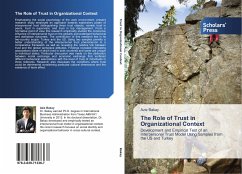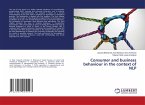Emphasizing the social psychology of the work environment, present research study employed an approach towards exploratory power of interpersonal trust distinguishing three trust objects; namely trust in peers, trust in supervisor, and trust in top management. From a normative point of view, this research empirically studied the conducive influence of interpersonal trust on the globally acknowledged behavioral and workplace outcomes. The contribution of this research lies in its two-country scope: Turkey and the US. Using two samples permits a better understanding of the interpersonal trust phenomenon in a comparative framework as well as revealing the relative link between trust and the global workplace attitudes. Findings revealed interesting associations some of which hold in both countries and some are unique to individual states. Particular discussion was made on the distinction between social exchange and economic exchange that surfaced different behavioral associations with the level of trust of individuals in three referents. Research also discusses the conditions where trust could be detrimental considering particular cultural dimensions and the existence of team effect.








